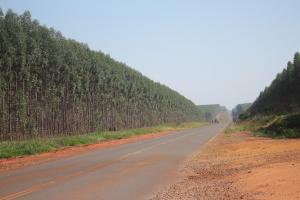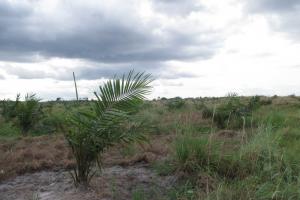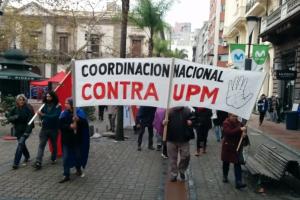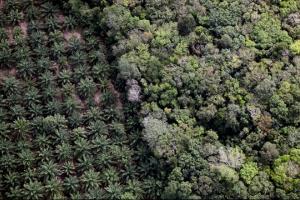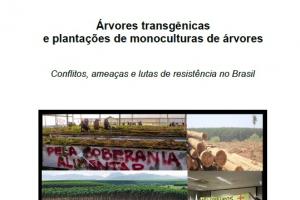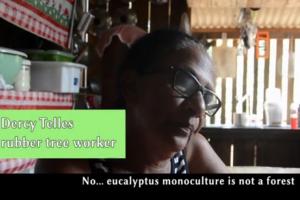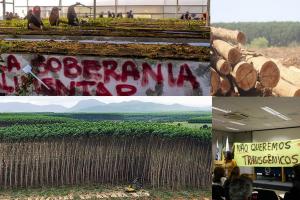Struggles Against Tree Monocultures
Corporate profit drives land grabs to install industrial tree monocultures. Where industrial plantations take root, communities' territories and lives are violently invaded, their forests destroyed and their water polluted. When communities resist, companies tend to respond with aggression. Despite this extreme violence, communities around the world are resisting, organizing and joining forces to defend their territories. Every September 21 the International Day of Struggle against Monoculture Tree Plantations is celebrated.
Public letter from Brazilian organizations to the International Union of Forest Research Organizations (IUFRO) World Congress, which takes place from 29th September to 5th October 2019 in Curitiba, Brazil.
The Singapore-based OLAM company has secured access to 500 thousand hectares of land in Gabon to set up large-scale oil palm plantations, a country with 85% of forest coverage. How can OLAM then claim to follow a “zero deforestation” commitment?
Only available in Portuguese.
Testimonies from the meeting "Threats and Impacts of Genetically Engineered Trees (GE-trees) Monoculture", that took place in Porto Alegre, Brazil, in April 2019.
Anne Petermann, coordinator of the global Stop GE-Trees Campaign, explains what Genetically Engineered trees are, the risks, uncertainties and context.
A threat spreads across our territories. Under the misleading name of “reforestation”, which sounds quite nice, huge plantations of exotic – and even genetically engineered – trees have been set up in Brazil by transnational corporations. True “green deserts” lead to the extinction of countless species of our fauna and flora and changed the fundamental characteristics of our incredible natural and cultural landscapes, with clear social and environmental impacts, threatening the traditional ways of life of peoples and communities.
As the first country in Latin America to deregulate a genetically engineered tree (a eucalyptus species) and with a favorable political environment, Brazil has become a reference for transnational companies to carry out their projects. Precisely for this reason, the World Congress of IUFRO – International Union of Forest Research Organizations – will be held in Brazil, between September 29th and October 5th, in Curitiba, Paraná. We reject this corporate event, where false solutions and new ways to increase corporate profits will be discussed, at the expense of the commons.
A new report on the state of industrial oil palm plantations in Africa shows how communities are turning the tide on a massive land grab in the region.
